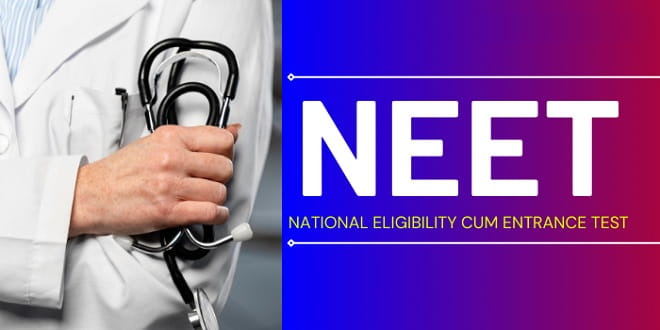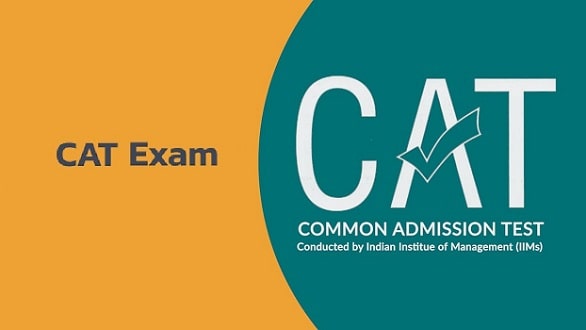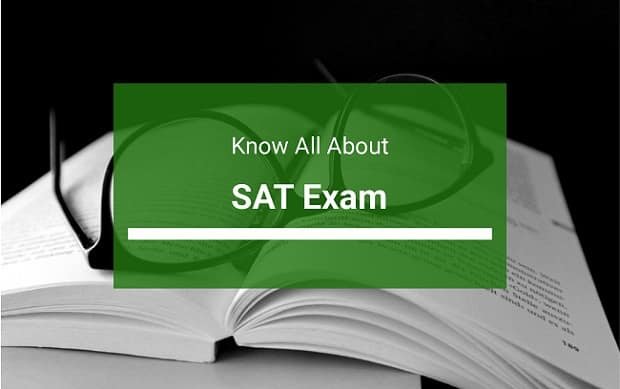Engineering is a fascinating career option where engineers can showcase their ability and skills by using their knowledge. The engineering sector is one of those popular fields that have a plethora of job benefits. A career as an engineer is the best choice for those who are passionate about the engineering industry. As you all know, becoming an engineer can be a long path for candidates. But worry not; if you can pick a top-notch institute then this long path will become interesting and beneficial.
In India, various private and public institutes offer a wide array of engineering courses. With so many alternatives to pick from, you certainly choose the right engineering institute as well as an engineering course. Undoubtedly, IITs institutes are the most prestigious and excellent institutes along with the best infrastructure. It has the best placement records from over the few years. The candidates are introduced to a new way of learning during their educational period. Moreover, the IITs provide prominent facilities and countless job opportunities to their aspirants, both in India and Abroad. IITs are the dream institute of every engineering aspirant but to get admission in them candidates need to qualify for national level entrance exam namely JEE Main and JEE Advanced. Are you one of them who are seeking admission in IITs? If yes, then explore the whole article to get information about the IITs exam.
What is IIT Exam?
The IIT JEE exam or Indian Institute of Technology, Joint Entrance Exam is a national level entrance exam conducts annually for admission to both private and public engineering colleges in India. The JEE Exan is conducted in two stages – JEE Main and JEE Advanced. The selection process of IITs is based on the JEE stages. At the primary stage, candidates will compete in JEE Main and become eligible for JEE advanced. After qualifying both stages, candidates will be selected for admission to prestigious IITs for UG and PG and integrated courses like B.Tech, Integrated M.Sc., M.Tech, B.Pharma etc.
Every year more than 1, 00,000 students appeared in the IIT JEE exam, but only a few candidates can qualify for this exam because it is one of the toughest entrance exams. This exam requires high-level knowledge and concentration. So, candidates are advised to go through with the previous year questions paper and will attempt a mock test. The JEE Main is a first stage which is conducted by NTA (National Testing Agency) and the JEE advanced is a final and crucial which is conducted by selected IITs on a rotational basis. Presently, the twenty-three IITs are situated
- in different states in India.
IIT (JEE Main) Eligibility Criteria – For regular students
Candidates who are willing to appear for JEE Main exam, must fulfil the below-mentioned criteria:
- Academic Qualification – The candidates must have passed their 12th standard or equivalent exam from any recognized board.
- Candidates appearing for 10+2 exams may also apply for JEE Main exam.
- Qualifying exam score – For general Category
- The candidates should be in the top 20 percentile in their qualifying examination Or
- Candidates should secure 75% of marks in their 10+2 examination.
- Qualifying exam score – For SC/ST/PWD Category
- The candidates must secure 65% of marks in their 10+2 examination.
- Age Limit – There is no maximum age limit for JEE Main
- The candidates should be 18 years old at the time of applying for JEE Main. Additionally, aspirants who are appearing for their 12th are also eligible for this exam.
- Mandatory Subjects –The JEE Main is considerably known for taking admission into prestigious IITs at 5-year B.Tech/ B.E. course or B.Arch courses or integrated courses. To get admission into the above-mentioned programmes, few mandatory subjects are required in the 10+2 examination.
- Compulsory subjects for B.Tech/B.E. – Mathematics, Physics, Chemistry/Biology/Biotechnology/Technical/Vocational/any other subject. Apart from this, candidates should also be studying English in their 10+2 examination.
- Compulsory subjects for B.Arch and B.Plan – To pursue B.Arch and B.Plan, candidates must have studied PCM in their qualifying examination.
- PCM stands for Physics, Mathematics (mandatory), and Chemistry/Biology/Biotechnology/TechnicalVocational/Any other subject.English should be studied in 10+2 by applicants.
- Number of Attempts –The students will get 3 attempts for JEE Main. The NTA conducts this exam twice a year and students can appear for both exams.
IIT (JEE Main) Eligibility Criteria – For Droppers
There are two types of categories as droppers:
- First Category – The candidate who attempted the JEE Main last year and didn’t qualify for it and will be appeared for the upcoming JEE Main exam.
- Second Category – In the previous year, those who have their 10+2 but took a temporary gap for JEE Main preparation and will be appeared for the upcoming JEE Main Exam.
The eligibility criteria for droppers has announced by NATA. Let’s take a look at it:
- Academic Qualification – As the minimum qualification, candidates should have passed their 10+2 examination or equivalent from any recognized board.
- Requirement of Minimum Aggregate for General Category Candidates – Applicants should be in the top 20 percentile in their qualifying examination, or
- He/she must secure at least 75% of marks in their 10+2 examination.
- Requirement of Minimum Aggregate for SC/ST/PWD – Candidates from this category must secure 65% of marks in their qualifying examination.
- Age Limit – Earlier, the upper age to qualify for JEE Mains was 25 years. Presently, there is no maximum age restriction for appearing in JEE Mains.
- Reservation Criteria – The reservation criteria for SC/ST/PWD/Other is listed below:
- For SC – 15% age relaxation
- For ST –5% age relaxation
- For PWD – 5% age relaxation
- For Gen-EWS – 10% age relaxation
- For OBC- NCL – 27% age relaxation
IIT (JEE Advanced) Eligibility Criteria
Before appearing for the JEE Advanced, aspirants must fulfil the below-mentioned eligibility requirement.
The eligibility criteria of JEE Advanced are based on few major aspects:
- Performance in JEE Main – The candidates should be secure rank in JEE Main (including reserved category).
- A candidate who belongs to SC/ST/Other category are shortlisted based on percentages and will get relaxation in percentage i.e. 10% for GEN-EWS, 15% for SC, 40.5% for ST, 27% for OBC-NCL etc.
- The PWD category candidates will get a 5% horizontal reservation.
- Age Limit – The lower age limit will be applicable for JEE Advanced. Those candidates will be eligible for the Advanced exam who are born or after October 1, 1996. The relaxation will be given to SC/ST and PWD candidates that mean candidates who belong to the reserved category should have born on or after October 1, 1991 (5-year relaxation).
- Number of Attempts – The JEE advanced entrance exam conducts every year and candidates can attempt this exam a maximum of 2-times in successive years.
- Passing year of Class 12th – Those who have appeared for the 12th class final year examination with PCM is considered eligible for this exam.
- If the examination board of class 12th announced the results for the current academic year, then the candidates of that board are also eligible to appear in JEE advanced exam.
- The previous admission at IITs – In case, any candidate in past accepted an IIT seat by reporting is not eligible for this exam.
- Earlier, any candidate who has been getting admission in an IIT and after that they are not continued in the course is not eligible to apply.
- Such candidates are also not eligible, whose admission at IIT has been cancelled after joining.
- Some other conditions are applicable, check the official website of this exam.
Exam Pattern and Syllabus of IIT JEE Main and JEE Advanced
The IIT JEE Main exam pattern is mentioned below:
- Mode of Examination – Computer-Based Test Mode
- Exam Duration – 3 hours ( 4 hours for a person with benchmark disabilities)
- Subjects – Physics, Chemistry and Mathematics
- Number of Questions – 90 ( 30MCQs for each subject)
- Maximum Marks – 300
- Medium of Exam –English, Hindi, Telugu, Urdu etc.
- Marking Scheme – 4 marks will be given for every correct response and 1 mark will be deducted for every incorrect answer; 4 marks will be given for every correct answer (numeric value).
IIT JEE Advanced paper pattern:
- Mode of Examination – Computer-Based
- Medium of exam – Hindi and English
- Number of Paper – 2 ( paper-1 and paper-2)
- Total duration – 3 hours
- Number of sections – 3 ( PCM)
- Marking Scheme – The exam has partial, zero and concept marks
Application fees for JEE Main:
- For Male candidates of Unreserved/OBC Category – INR 650
- For Female Candidates of Unreserved/OBC Category – INR 325
- For SC/ST/PWD/Transgender – INR 325
Application fees for JEE Advanced:
- Female Candidates ( all categories) – INR 1400
- SC/ST/PWD – INR 1400
- Other candidates – INR 2800
- Foreign nationals ( from SAARC countries) – USD 75, USD 150 for Non-SAARC Countries
How to apply for the IIT JEE exam:
To apply for the IIT JEE exam, you would have to visit the official website – https://jeemain.nta.nic.in and register in your account. After that, you can find JEE Mains option on the main web page click on it and fill the application form and upload the required documents. As you click on submit button it will direct you to the payment gateway. After payment, you will receive the application number on the registered id.

Rahul Kumar is a passionate educator, writer, and subject matter expert in the field of education and professional development. As an author on CoursesXpert, Rahul Kumar’s articles cover a wide range of topics, from various courses, educational and career guidance.




